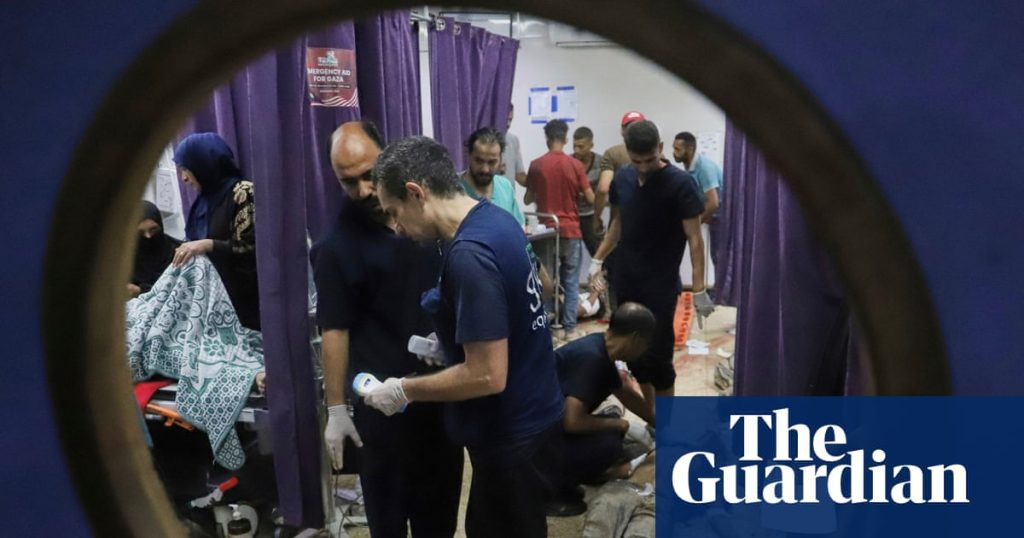Healthcare Crisis in Gaza
Medical personnel in Gaza report that escalating hunger and food shortages are rendering them too weak to provide essential care to the malnourished and injured patients in hospitals.
Nearly a dozen healthcare workers across the region have shared with the Guardian and the Arabic Reporters for Investigative Journalism (ARIJ) their desperate struggles to find food and the deteriorating health caused by hunger.
Dr. Mohammed Abu Selmia, the director of al-Shifa hospital in Gaza City, mentioned the extreme exhaustion of staff, with some even fainting during surgeries. He noted that both the medical staff and the population have not received any aid or meals over the last 48 hours. “This famine will compromise medical services as our staff cannot endure much longer,” he warned.
Many doctors who reached out to the Guardian chose to remain anonymous for fear of reprisals from the Israeli military. “Today, I worked a 24-hour shift, yet we were informed there was no rice available for us,” said one al-Shifa physician. “We had treated 60 neurosurgery patients, and right now, I can barely stand.”
Another volunteer at al-Shifa expressed that he hadn’t eaten in over a day and was distressed about his family’s lack of food. “There’s nothing in the markets, and we can hardly walk. We don’t know what to do,” he lamented.
A surgeon at Nasser Medical Complex reported a growing influx of patients suffering from malnourishment-related issues, including gastroenteritis and fainting spells. “I refrained from eating for two days because of my own gastroenteritis, and during surgery on a girl who had been shot, I had to pause due to my low blood pressure,” he recounted.
Worsening Conditions and Urgent Needs
Dr. Selmia stated that healthcare workers continue to operate despite the severe lack of food. However, the growing malnutrition among patients places immense stress on an already weakened workforce. He revealed that in the last three days alone, 21 children have died in the Palestinian territory due to malnutrition and starvation.
UNRWA chief Philippe Lazzarini reported instances of healthcare and aid workers collapsing from hunger and fatigue. Many medical staff face a dilemma: continue providing urgent care or risk going out to find food for their families.
As Gaza’s healthcare system has been devastated over 23 months of conflict, the World Health Organization reported that 94% of hospitals are either damaged or destroyed, leaving only 19 of 36 operational hospitals. “Gaza’s healthcare workers are experiencing unprecedented levels of food insecurity and frequent fainting during surgeries,” stated Muath Alser of Healthcare Worker Watch. “We cannot merely condemn this; we need immediate action.”
The IDF has stated that it is facilitating the distribution of humanitarian aid for continued hospital operations and is reviewing incidents where harm to civilians was reported at distribution facilities.



